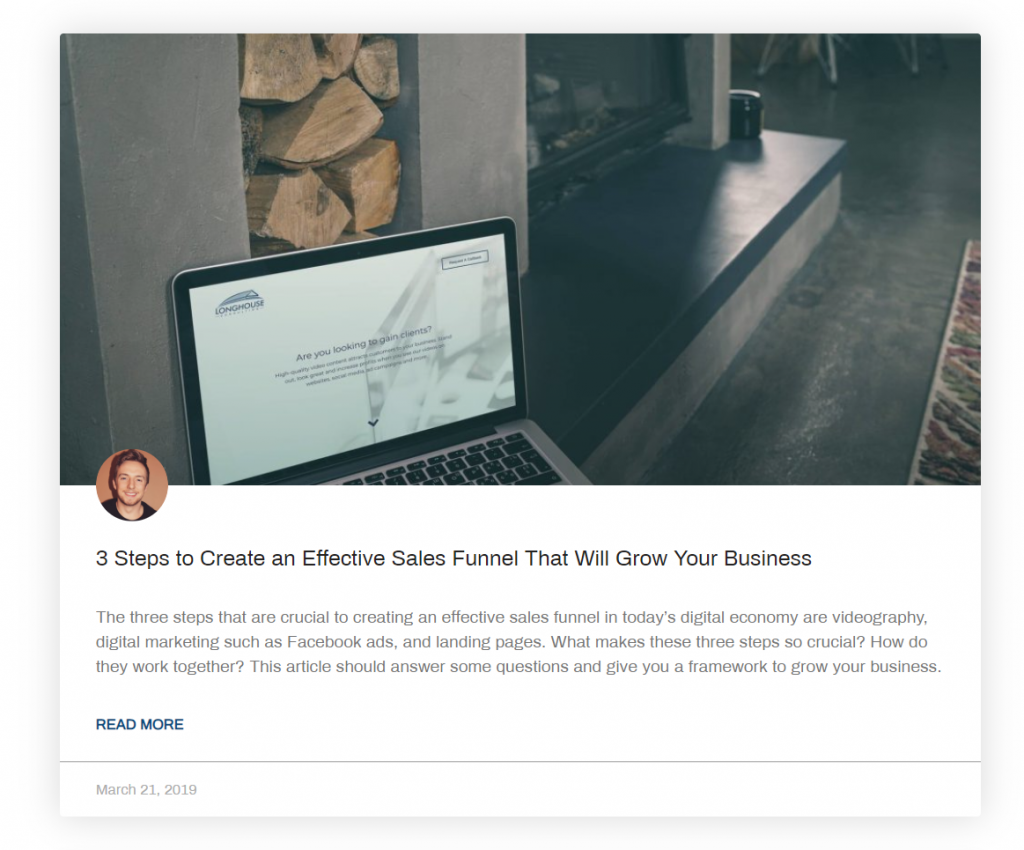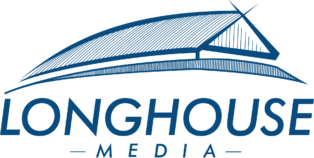“Do I need SEO?” Is a Question Many People Ask Our Media Company
My response? “Traditional SEO companies are a scam and can burn a hole in a manager’s budget, but a good SEO company can help your business reap huge rewards!” (Unfortunately, there are significantly more SEO companies run by con-artists than there are good businesses.)
Now I should clarify.
What is traditional SEO? Is there modern SEO?
Yes, modern search engine optimization (SEO) is a thing and it vastly differs from what people traditionally have called SEO. Modern SEO can produce amazing results for your business, just don’t hope for a quick, cheap path to goal line.
The traditional SEO industry revolved around gaming adolescent search engine algorithms by means of: ‘keyword stacking’, fake backlink automation and duplicating content. Let’s look at each of these briefly.
Keyword Stacking:
Keywords are words or phrases relevant to your business that you are looking to rank up for. For Longhouse Media some example keywords would be: media, digital marketing and custom tech solutions. Historically, Google figured that a website which contained the name “Ron Paul” the most times would be the most relevant website for people searching for information on the politician. As such, it was common to see web pages with text reading something like this
“Ron Paul Congress Ron Paul Ron Paul Texas Ron Paul Age 82”
Not very useful! Some optimizers went further and wrote their keyword hundreds of times and then changed the font colour to white so that it would be invisible to site visitors. Although not very common, invisible keywords resulted in pages where users would be suggested something like an online casino after searching for something like “Can I feed my husky hot sauce?”
Poor husky tongues…

As you can probably tell from your recent searches on Google and Bing, keyword stacking no longer works and can in fact greatly damage a site’s ranking permanently.
Duplicate Content
Somewhat in the same vein as keyword stacking, duplicating content was an effective way for SEO companies to game Google into ranking their pages higher. Duplicating content works by writing the websites text normally but then to have multiple pages with effectively the exact same text on it resulting in websites where viewers are unable to effectively navigate without wasting time.
If every page on a website contains the same opening paragraph, Google no longer is likely to not consider the page as a recommendation for its users.
Fake Backlinks
Backlinks are when you have your website’s URL linked to by another web page. The goal with backlinks now is to have ones with ‘High-Authority’, meaning from sites with a good reputation.
Low authority backlinks were all the rage back in the early 2000s. You could pay an SEO company a few hundred bucks and they would submit your URL on hundreds of pages from various domains. Cheap, low-authority backlinks made it hard for legitimate, lower-popularity websites to compete without also having to purchase these packages.
What does Google Want in Their SEO Algorithm?
Google’s goal is to show its users the most relevant pages for their search terms. This goal conflicts with the traditional SEO firm’s goal of gaming the algorithm. Instead what Google proposes companies looking to rank up on social media should do instead of the aforementioned can be broken down into two sections, on-site and off-site optimization.
On-Site Search Engine Optimization
On-Site optimization is the most technical form of SEO. It can be simplified by saying that its purpose is to ‘make your website easy to understand by Google’. As a digital marketer, part of our job is to make it so not only search engines understand the text on your website but the computers over at Bing and Google can as well.
Here are some of the must-haves when it comes to on-site SEO:
Copywriting
Be sure to have your desired keywords riddled throughout your page authentically; good form is to have it as a root part of common search phrases for said keyword (If you want to rank up a ‘hair salon’ page, include “hair salon for new clients” or “premium hair salon for men”).
Titling
An effective title for SEO is one that contains your keyword. High quality titles will promote others to click on, read and understand your message. Subheadings are also a valuable spot to consider when optimizing for SEO; be sure to include not only your keywords but also some long-tail keywords as well (phrases which include your keywords).
Now for the tricky, and arguably the most important stuff. A bit of coding knowledge is required for this section. If you are looking to get your website optimized on the backend feel free to contact us (hyperlink) for a free consultation.
Meta Title
The title tag is the most important on-site SEO factor. Keeping the beginning of the meta title closely related to your target keyword will give your page more weight with search engines.
Meta Description
The meta description gives search engines and readers a short look into what your page contains. Be sure to drop your keywords near the beginning of the meta description to get ranked higher.
Anchor Text
Anchor text is the visible, clickable text in a hyperlink. SEO friendly anchor text is concise and relevant to the target landing page.
Image Names and ALT Attributes
Search engines scan every possible detail about your page when ranking. An often forgotten element of on-site SEO is the labeling of a page’s images. Image names and Alt Attributes are used by screen reading softwares so that the visually impaired can navigate the page. A good rule of thumb for alt attributes is to add relevant keywords which would aid in the navigation of your page by the visually impaired.
Sitemap.xml and Robots.text
In order for search engines to index your page, search engines need to receive a map of the URLs on a website in .xml format. As well as the sitemap, search engines require the robots.text file so that they know what info is on your website.
Schema
Schema markup is very important for describing to search engines exactly what your business, product, service or article is about. If you’ve used any popular search engine in the past few years, you’ve definitely seen an example of schema being used. The best example is the review schema type that’s shown in a search result for a restaurant, product or movie. Incorporating schema in your website can be done using JSON-LD (JavaScript Object Notation for Linked Data). If coding the schema yourself seems like a daunting task, there are numerous WordPress plugins available that will integrate schema into your website, without the headache. Schema.org provides an exhaustive list of available schema types.
Off-Site Search Engine Optimization
Off-Site optimization is the process of developing meaningful content that is relevant to searchers for your target keywords. Building backlinks, gaining reviews and a powerful social media presence is mandatory when it comes to getting ranked on the first page of Google.
Backlinks
Backlinks are the backbone of reliability. If respected people or websites are linking your pages to their followers then your page by association is deemed reliable! It is important to only focus on gaining ‘high-authority’ backlinks (shares from high quality websites) instead of getting your link posted on every possible and even irrelevant sites. As mentioned earlier in this blog post, fake backlinks are detrimental to SEO and can result in getting blacklisted from Google.
Reviews
are a clear sign of reliability, especially when facilitated through the search engine’s own review service such as Google ‘My Business’. Businesses who are rated at 5-stars will enjoy higher rankings and thereby have more organic traffic on their website. Reach out to us at Longhouse if you are looking to get your business to 5-stars and gain more reviews.
Social Media
Social Media is a fantastic way to stay connected to your customers. Remaining engaged in a natural way results in greater backlinks, more reviews and increased exposure. A large aspect of SEO is how often your brand is associated with our target keywords online; social media is a great outlet for increasing the aforementioned metric.
Blogging
Blogging is possibly the most important part of current search engine rankings. Blogs allow for a business to include target keywords, proving to Google that you are credible in your industry and that your website is relevant for search terms. Blogging is a tough task for many people, that is why many companies turn to Longhouse to handle their blogging. Google values quality and consistency so it is important to post regularly and to focus on having well thought through posts.
Overall, Off-Site SEO can be a time-consuming, expensive process. Many businesses choose to outsource this task to an SEO agency.

In Conclusion: On-Site and Off-Site SEO are Important to Ranking Your Business on Google
Ranking on the first page of Google is important, ranking in the top 3 is even more important. In order to do so you need to partner with a company that values transparency and provides a quality SEO service. To answer the question that started this article, YES you need SEO but be sure that you are paying for the GOOD services mentioned above.
Longhouse Media works with all industries to improve their Google rankings and increase their customers. Find Longhouse’s SEO and Google Local Listings page here and rank on Google today.





